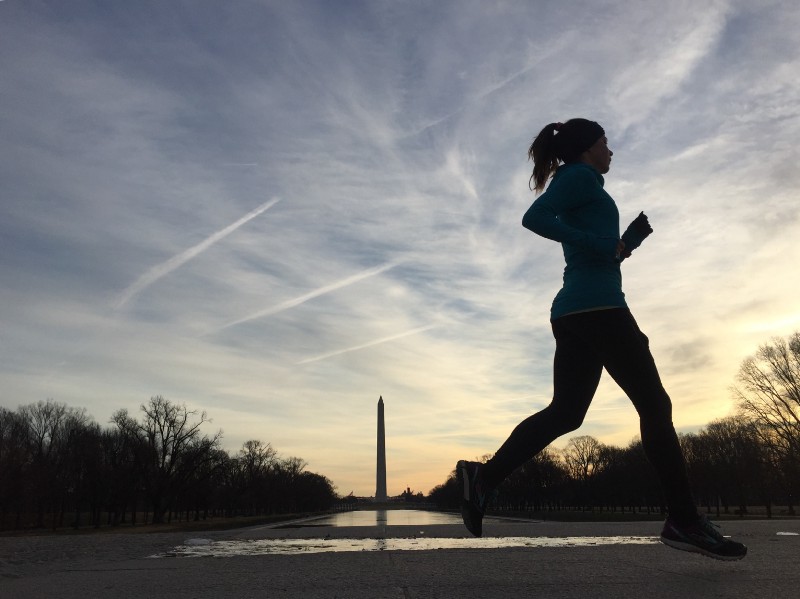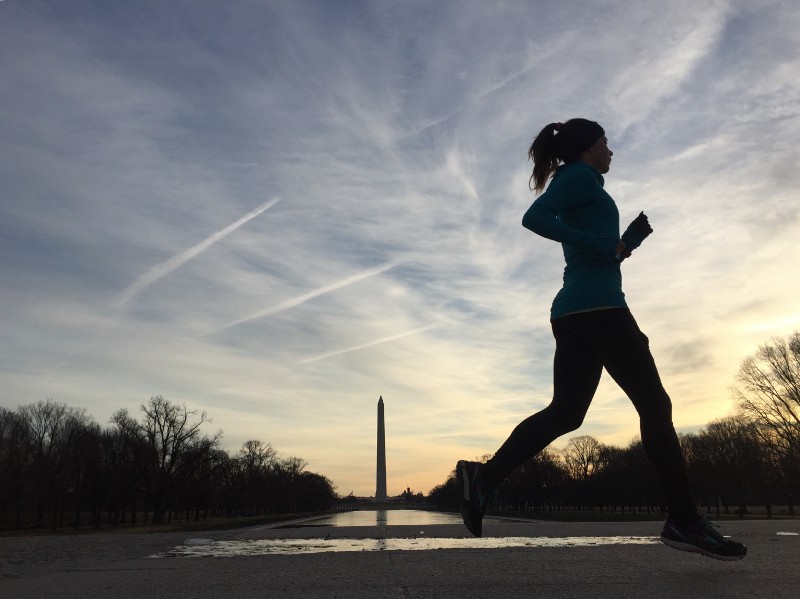I fill out the health history forms, quickly making my way through the list of pre-existing conditions, checking “No” for everything. No asthma, no high blood pressure, no chronic back pain. I’m 18 years old. I’ve played sports for most of my life, I happen to like a lot of fruits and vegetables (except tomatoes), and my dad is a physician. I’m the easy patient. I don’t want medications, so you may have to force antibiotics on me if necessary. I know my throat hurts and it’s probably strep, but I’m in college so maybe it’s any one of 100 other things that I could have contracted from the hallway air. I got my spinal meningitis vaccine, though, so please just tell me it’s not that.

“When was your last period?”
I’m stumped. It’s October (2004), and I know I haven’t had one since I arrived at Penn State, in late August. How had I not noticed that? Is that normal? I had a period over the summer; I remember because we were on a family vacation (an annoying personal trend that has continued through adulthood). “June/2004,” I write.
The nurse reviews my forms and quickly scans my list of “No” boxes. Maybe she’ll bypass the period question, I hope, because who wants to talk about that? She doesn’t ignore it. She asks the obvious question, to which I reply, “No, I’m not pregnant.” She persists. “Yes, I’m sure!” 100 percent. We don’t discuss it further. I’m relieved.
Now I know: I had secondary amenorrhea, and it wasn’t normal.
Sometime after high school and before college, I developed an eating disorder. I was stressed after a big move (from New Mexico to Pennsylvania). Everything was different. There was no sunshine for days! I needed to control something; my mind chose food. Within months I had lost a lot of weight. My body didn’t have the resources it needed to keep my reproductive system healthy.
For the next six years I struggled to come up with the date of my last period on my health history forms. I took birth control pills for a few months at a time to try and supplement my body with the hormones it wasn’t making enough of. I stopped taking birth control multiple times, because I felt bloated and moody. But I was a nutrition student, and I knew very well that during those no-pill-no-period times, I was putting myself at risk for low bone density. (Estrogen levels and bone mass are related.) So, I begrudgingly refilled my prescription. This cycle continued; my natural menstrual cycle stayed out of it.
Share your story, your experiences, or your expertise with the Lane 9 Project.
I never talked to anyone about my eating disorder.
I felt ashamed to be a nutrition student-turned-professional who couldn’t get a handle on my personal nutrition. On the other hand: For a long time I thought that the way I ate—only low-calorie, low-fat foods—was “healthy.” It wasn’t.
I framed it as my problem, that I served to myself with my own hands. So I had to solve it. Instead of talking about it, to anyone, I started changing one little thing at a time. I stopped weighing myself. I stopped working out on cardio machines that told me how many calories I burned. I stopped journaling my food. I wanted to start eating more, and caring less. None of this happened overnight.
I learned that eating disorders don’t come with an on or off switch. Recovery doesn’t come with a set plan, or boxes to check.
I also started running. It was my only constant.
I ran for exercise in college. I turned to it for stress relief during my dietetic internship. I went to running groups to meet new friends when I moved to DC. Running gradually taught me that food is fuel, not foe. It taught me that my body is not just measurable, it’s capable.
I ran through my recovery, not to run away from my eating disorder, but to get to know it. I still run because it keeps me honest. It teaches me new things all the time. It brings good people into my life. It brought me here.
Recovery is a long road.
Or in my case, a lot of short and long runs. And a lot of time on the yoga mat. And a lot of pages read, thoughts journaled, and finally, conversations had. I can’t do the full recovery process justice in a few short sentences or paragraphs, though, so we’ll talk about it another time.
Let’s definitely do that, though. Let’s exchange stories. Let’s talk about amenorrhea, and running, and eating disorders, and the prevalence of the Female Athlete Triad amongst both elite and hobby athletes. That’s why we’re here. This is your community, these are your people. This is where we stop thinking that this is an individual problem to solve, and recognize that it takes a tribe. Welcome to Lane 9, where we’re on a run and in for all it, together.
If you’re an active lady or lady health activist, coach, mentor, parent, or healthcare provider, let us know through our community form. If you want to share your story, get in touch with us through the form or by emailing Lane9Project@gmail dot com. If you just want to follow along, stay tuned hereand say hi 👋 on Twitter.
Let's Go!
Coaching for Runners
Work with our coaches for a personalized training plan that takes into account every aspect of your life - from season to traveling to terrain.
Learn More
Workshops for Teams
Book a workshop to help shift team cultures and coach attitudes to provide a healthier environment and more competitive athletes.
